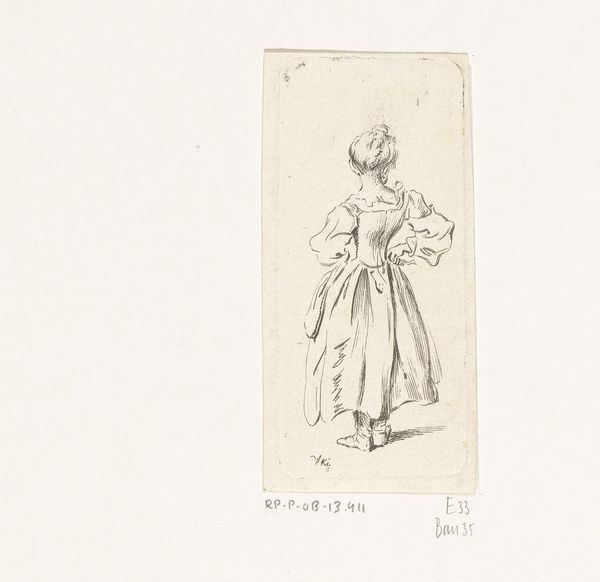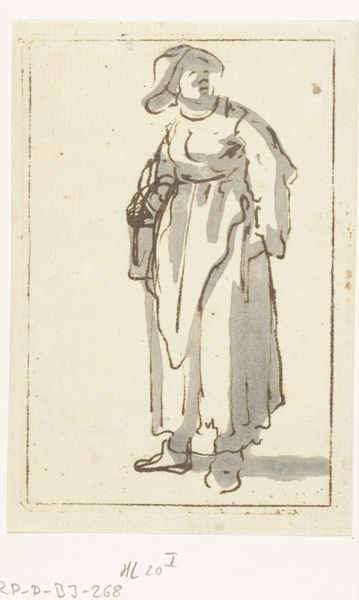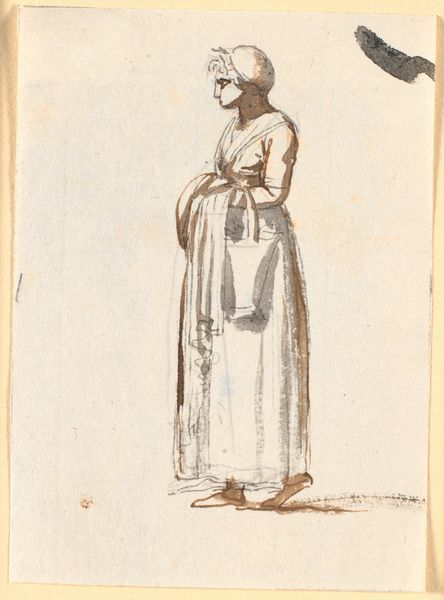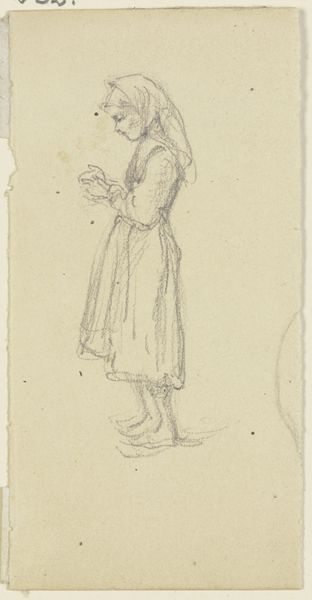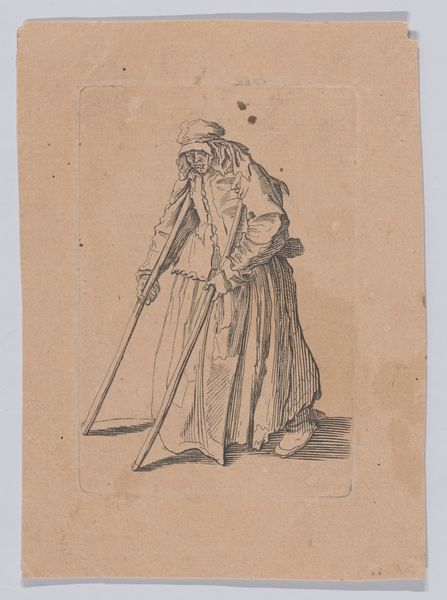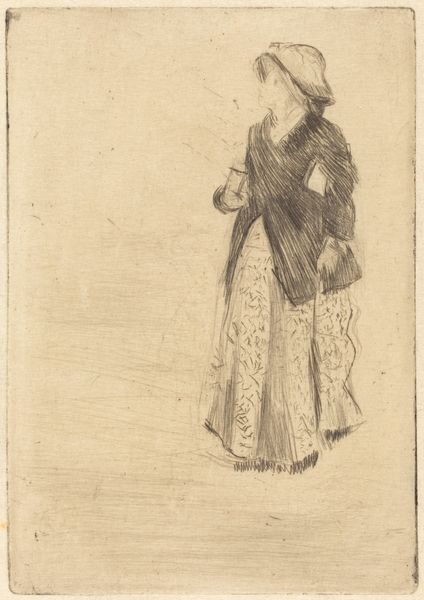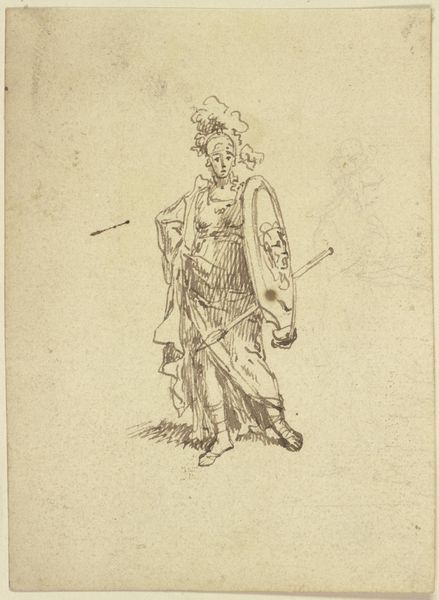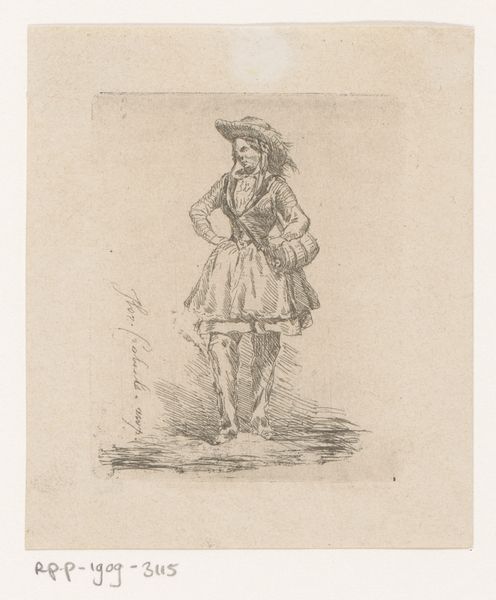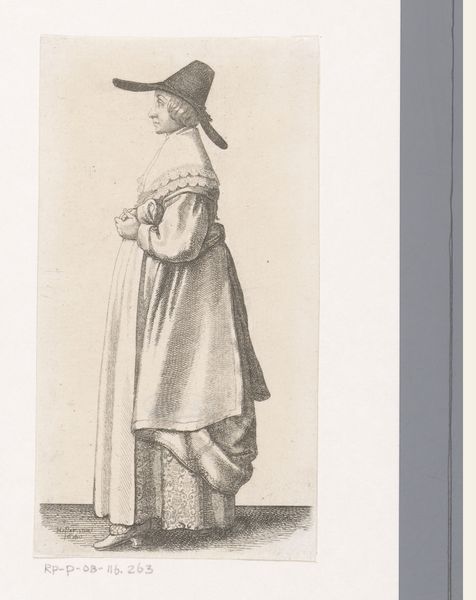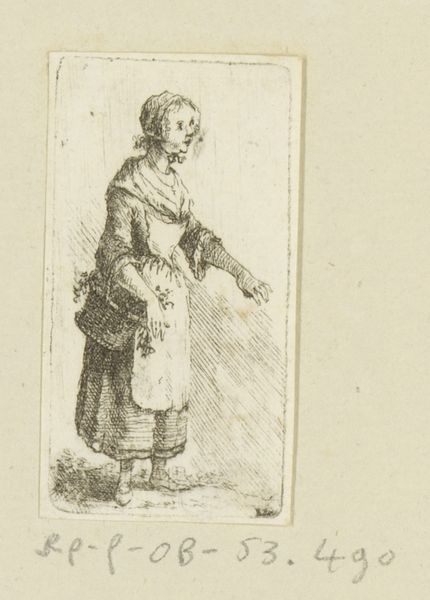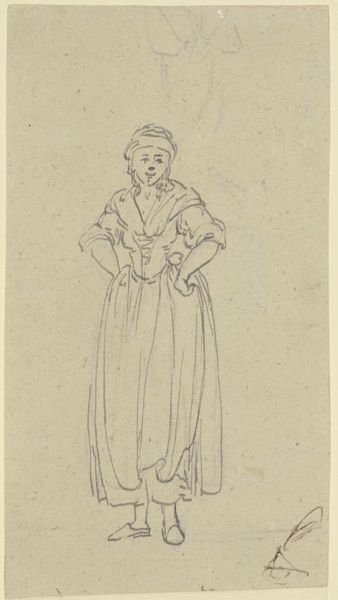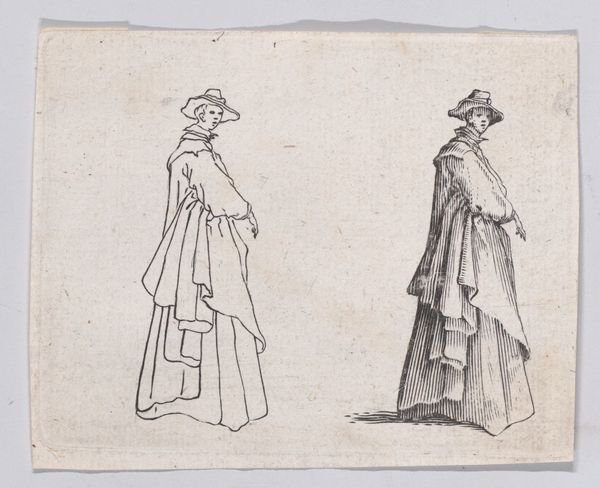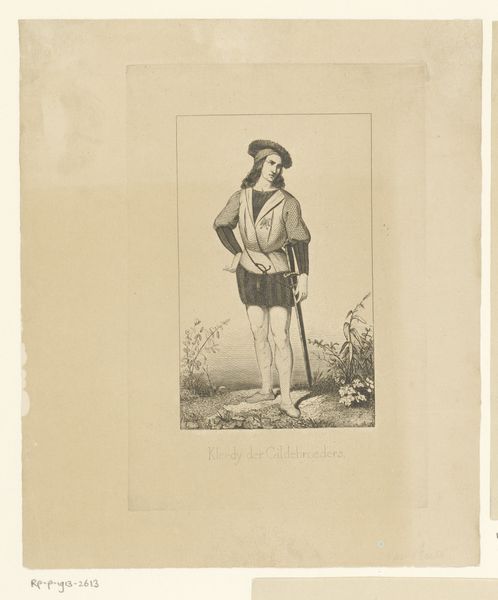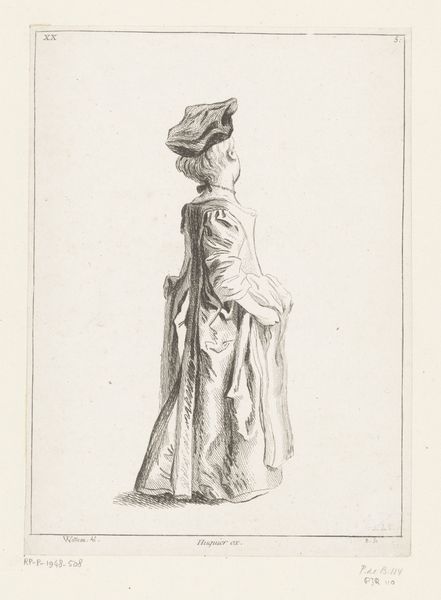
drawing, paper, ink
#
portrait
#
drawing
#
comic strip sketch
#
imaginative character sketch
#
light pencil work
#
narrative-art
#
pencil sketch
#
cartoon sketch
#
figuration
#
paper
#
personal sketchbook
#
ink
#
idea generation sketch
#
ink drawing experimentation
#
sketchbook drawing
#
genre-painting
#
storyboard and sketchbook work
#
academic-art
#
realism
Dimensions: height 113 mm, width 72 mm
Copyright: Rijks Museum: Open Domain
Curator: Immediately, there's a starkness. The linework is quite economical, but it gives such volume to the figure. Editor: Precisely! Ernst Willem Jan Bagelaar created this ink drawing on paper, "Standing Farmer Woman," sometime between 1785 and 1837. It embodies a particular fascination with representing everyday rural life. The narrative emerges primarily through a focus on the woman herself. Curator: Agreed, it's the directness of the depiction that strikes me. Look how the washes define her form, creating a sense of depth and weight. The minimal shading around her feet grounds her so effectively, doesn’t it? Editor: It certainly gives her a presence. These so-called genre scenes became incredibly popular. What is she thinking, feeling, her experience as a member of a hard working class? Artists found an eager audience among a bourgeoisie that was increasingly sentimental and enjoyed these picturesque rural depictions, particularly farmers. This also romanticized her position in a way. Curator: An intriguing point. Yet, on close inspection, the drawing has so much compositional rhythm, achieved so economically by varying the weight of the line and the areas of shading. There is this dance in how the robe falls from the right and her head gear on the left and how those echo downward into the contour of the calf. Editor: Absolutely, it's like Bagelaar is dissecting this figure into its essentials. There is something unidealized and dignified here at the same time. By foregoing flourishes in her attire and not flattering, the drawing really captures some type of experience, real or constructed. It raises interesting questions. Curator: A beautiful reminder that even a simple sketch can hold multiple layers of meaning and invite various viewpoints, be them social, historical, or purely aesthetic. Editor: Indeed. It urges us to remember the complexities inherent in even seemingly simple representations and reminds us of the power dynamics at play during that time in the Dutch Republic.
Comments
No comments
Be the first to comment and join the conversation on the ultimate creative platform.
